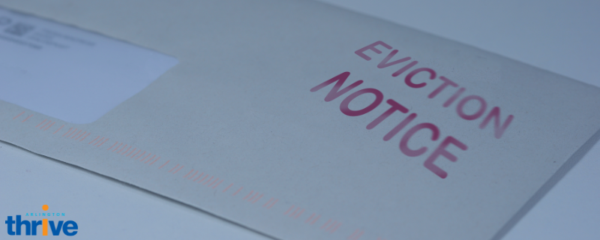 And the Power of Timely Help
And the Power of Timely Help
A home is more than just shelter. It’s a foundation for health, stability, and dignity. But in Arlington’s high-cost housing market, even a modest apartment can become a source of financial strain. With average rents hovering around $2,664 per month, many residents—especially those on fixed incomes—live just one unexpected expense away from crisis.
Take Dana, for example. Living on a limited income, she had carefully budgeted to keep her rent current. But hidden building fees and surprise charges pushed her beyond what she could afford. She wasn’t months behind—just a few hundred dollars—but the consequences were potentially life-changing. Facing eviction, Dana reached out to Arlington Thrive.
Our team responded immediately. By covering her past-due balance and helping her understand her lease terms, Thrive prevented her eviction and connected her to longer-term supports. Dana’s story is not unique—it’s a powerful reminder of how fragile housing security can be for those living on the edge.
The Ripple Effects of Eviction
Eviction doesn’t just mean losing a home. It can trigger a cascade of negative outcomes:
- Health impacts: Evicted individuals face higher rates of depression, anxiety, and chronic illness.
- Employment loss: Housing instability often leads to job loss, either directly through displacement or indirectly through stress and logistical challenges.
- Homelessness: Many evicted tenants end up in shelters or on the streets, increasing public costs and personal hardship.
For residents on fixed incomes, there’s often no safety net to absorb these shocks. Even a small rent increase, a medical bill, or a maintenance fee can set off a chain reaction.
Why Prevention Is Smart—and Compassionate
That’s why Arlington Thrive’s work is so urgent. Our rapid emergency financial assistance helps families stay housed before a crisis spirals. But we go beyond financial support. We walk alongside clients—helping them understand lease terms, access benefits, and connect to community resources.
Each intervention is about more than paying a bill; it’s about preserving dignity, health, and the stability of home.
And it’s cost-effective. Studies show that preventing eviction costs far less than rehousing someone after displacement. For example, Maine’s Eviction Prevention Program saved over $10.5 million in public costs—including shelter, healthcare, and child welfare expenses—by investing $18 million in proactive support.
A Community at Risk
Arlington’s housing challenges are systemic. Only 12.1% of rental units are affordable to residents earning up to 60% of the area median income, far short of the county’s goal of 17.7% by 2040. And with rising rents and limited affordable housing stock, many families are being priced out of the community they call home.
For Dana—and hundreds of others like her—timely support from Arlington Thrive makes the difference between displacement and the chance to rebuild.




